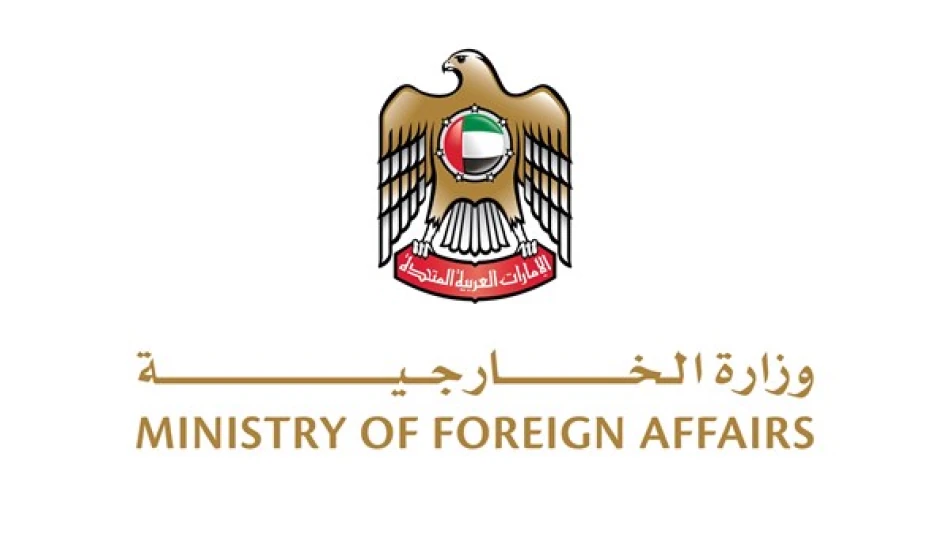
UAE Strongly Condemns Israel's Statements on 'Greater Israel'
UAE Breaks Diplomatic Silence: Sharp Condemnation Signals Growing Rift with Israel Over Territorial Ambitions
The United Arab Emirates has issued its strongest condemnation yet of Israeli Prime Minister Benjamin Netanyahu's recent statements about "Greater Israel," marking a significant diplomatic shift that could reshape Middle Eastern alliances. The rebuke represents a rare public criticism from a nation that normalized relations with Israel just four years ago, signaling that even Israel's newest Arab partners have limits on territorial expansion rhetoric.
Diplomatic Language Reveals Deep Concerns
The UAE's Foreign Ministry didn't mince words in its official statement, describing Netanyahu's comments as "provocative" and a "flagrant violation of international law and the UN Charter." This unusually harsh diplomatic language suggests the Emirates views the Israeli leader's territorial ambitions as crossing a red line that threatens regional stability.
The statement specifically called for an end to "settlement and expansionist plans" while demanding that "extremists in the Israeli government" cease inflammatory rhetoric. This pointed reference to extremists—rather than the government as a whole—indicates the UAE may be trying to preserve some diplomatic space while still delivering a clear message.
Testing the Abraham Accords Framework
The UAE's condemnation puts significant strain on the Abraham Accords, the 2020 normalization agreement that was hailed as a breakthrough in Arab-Israeli relations. The accords were built on mutual economic interests and shared security concerns about Iran, but territorial expansion was always a potential flashpoint.
Economic Stakes Run High
Since normalization, bilateral trade between the UAE and Israel has grown to over $2.5 billion annually, with significant investments flowing in both directions. Major Emirati firms have stakes in Israeli technology companies, while Israeli businesses have expanded into Gulf markets. This economic interdependence makes the current diplomatic tension particularly significant—and potentially costly for both sides.
Regional Implications and Broader Context
The UAE's stance reflects broader Arab concerns about Israeli territorial ambitions, particularly as settlement expansion in the West Bank continues despite international opposition. By speaking out, the Emirates positions itself as defending Arab sovereignty while maintaining its role as a regional mediator.
This move also aligns with similar criticism from other Abraham Accords signatories, including Bahrain and Morocco, suggesting a coordinated response rather than an isolated diplomatic protest. The unified approach indicates that Arab normalization with Israel came with implicit boundaries that Netanyahu's government may be testing.
Strategic Calculations Behind the Rebuke
For the UAE, this public criticism serves multiple strategic purposes. Domestically, it addresses public opinion that remains largely sympathetic to Palestinian concerns. Regionally, it reinforces the Emirates' credentials as a defender of Arab interests, countering criticism that normalization represented abandonment of the Palestinian cause.
The timing also matters: with ongoing conflicts in Gaza and Lebanon, and growing international pressure on Israel, the UAE likely calculates that distancing itself from expansionist rhetoric protects its broader diplomatic and economic interests while maintaining leverage over Israeli policy.
Market and Investment Implications
This diplomatic tension could impact the significant economic partnerships built since 2020. Defense cooperation agreements, joint investment funds, and technology transfer deals may face scrutiny if political relations deteriorate further. However, the UAE's measured language suggests it seeks to compartmentalize political disagreements from economic cooperation—a approach that has served Gulf states well in managing complex international relationships.
The real test will be whether this remains a war of words or escalates to affect practical cooperation in trade, security, and regional diplomacy.
Most Viewed News

 Layla Al Mansoori
Layla Al Mansoori






